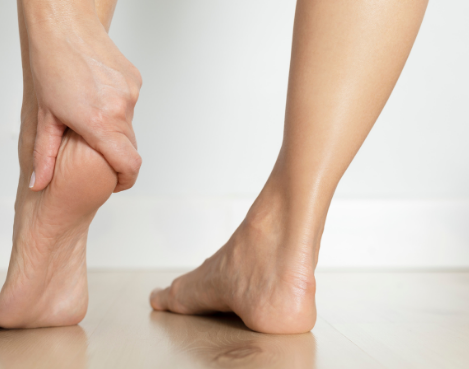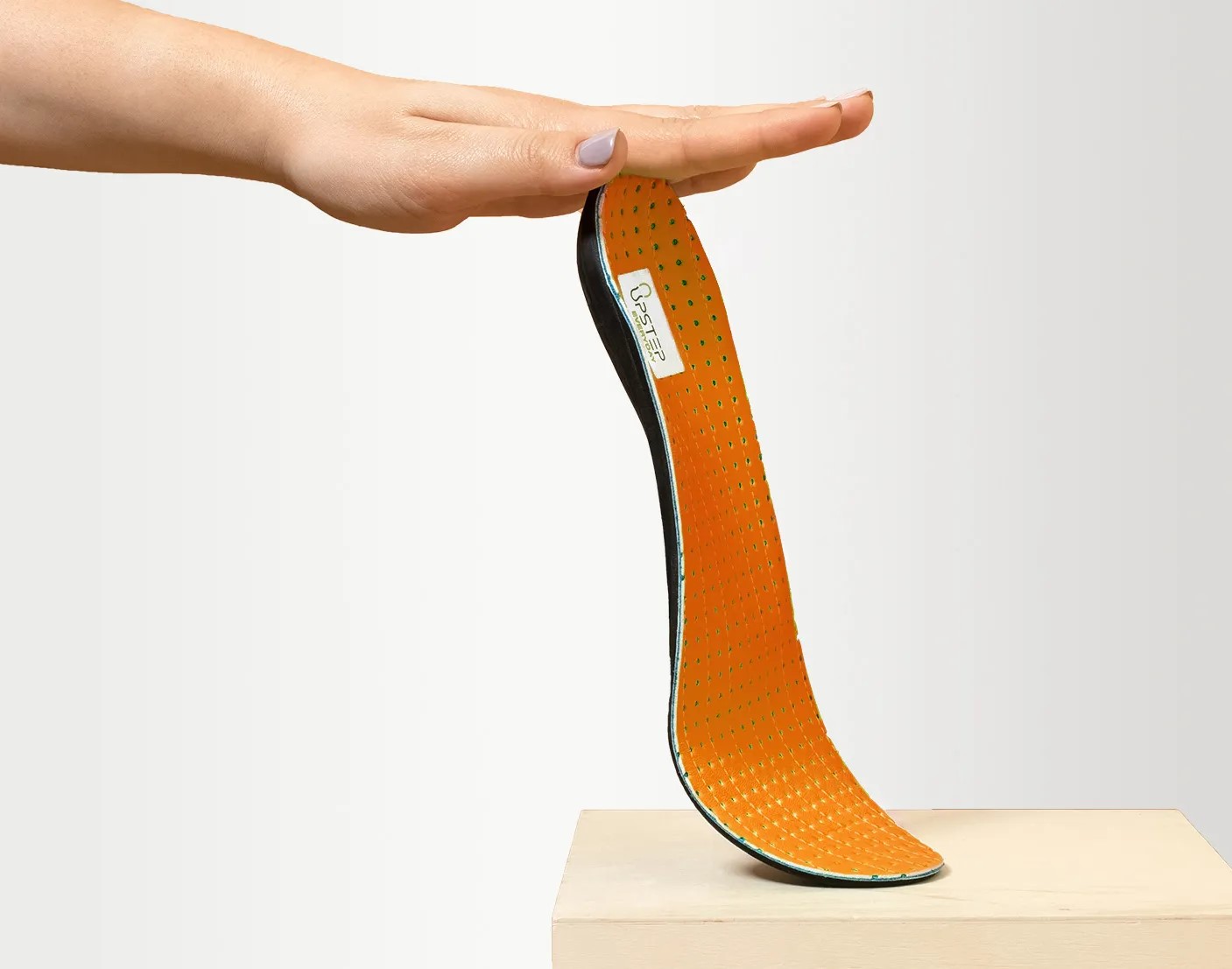Common Causes of Burning Heels
Updated December 17, 2024.

Burning heels can be very troubling. The feet feel hot, with possible tingling, prickling, or numbness experienced intermittently or constantly, ranging from mild to severe. The foot pain is often worse at night and may indicate underlying nerve damage or a disorder of the nerves supplying the foot. Some people may even experience burning feet that feel cold.
These symptoms can be limited to the soles of the feet. Sometimes, however, they can affect the top of the feet, the ankles, and even the lower legs. This set of symptoms is sometimes referred to as Grierson-Gopalan syndrome.
There are different causes of burning feet. It is essential to identify them, as treatment depends on the underlying cause. Read on to learn more about some of the causes of burning sensations in the feet and when you should seek help.
1. Nerve Damage
The most common cause of a burning feeling in your feet is nerve damage. Precursors to nerve damage include diabetes (diabetic neuropathy), alcohol consumption (alcoholic neuropathy), degenerative changes to the bones (peripheral neuropathy), and several other conditions that will be discussed separately.
The progression of the nerve damage depends on the cause. For example, with alcoholic neuropathy, progression is primarily slow and extended over a long period. It is found among people who have a long history of consuming large amounts of alcohol.
Nerve damage can also result in the skin of the heels becoming dry and cracked. When the skin cracks and flakes, there is often a burning sensation where the skin is dry.
Nerve damage can become irreversible, so the earlier it is addressed, the better. To prevent and reduce the symptoms of burning heels, the aim should be to stop the progression of the nerve damage as soon as possible.
2. Organ Dysfunctions
When an organ like the kidney becomes dysfunctional, toxic waste builds up in the bloodstream. These toxins damage the peripheral nerves, leading to peripheral neuropathy, otherwise known as uremic neuropathy. The greater the organ dysfunction, the greater the level of nerve damage that can be expected. When the nerves in the feet are affected, it can cause burning heels.
A similar condition results from peripheral arterial disease (PAD). Instead of the arteries dilating to allow blood flow to the feet and legs, they begin to constrict, leading to neuropathy.
3. Side Effects of Medications
Several medications have the unwanted side effects of causing nerve damage when used for long periods. Some of these medications include thalidomide, pyridoxine, amitriptyline, chloroquine, disulfiram, cimetidine, phenytoin, lithium, metronidazole, colchicine, and nitrous oxide.
In addition to these, the medications used in cancer treatment like paclitaxel and cisplatin also cause peripheral neuropathy as a side effect. This medication-induced neuropathy can cause sensory and motor symptoms such as burning heel pain.
4. Nutritional Deficiencies
When there is a deficiency of nutrients required by the body for the maintenance of nerve health, nerve damage occurs, and you can present with burning heels. In particular, vitamins (including vitamin B12, B6, and B9), magnesium, and potassium are all necessary nutrients, and a deficiency in any of these can cause burning heels.
To combat this, ensure you take the minimum recommended amount of each nutrient. For example, an average daily intake of 2.4 micrograms of vitamin B12 is recommended to maintain serum levels of the nutrient and prevent a vitamin B12 deficiency.
5. Infectious Diseases
Infectious diseases can also attack nerve heads and the body, causing burning heel pain. Examples of infections that may result in burning feet include Lyme disease, HIV, syphilis, shingles, and athlete’s foot (tinea pedis).
It is important to treat any infection promptly before it causes irreversible damage to your nerves and spreads to nerves other than those in the feet.
6. Physical Trauma, Injury, or Stress
Physical injury, stress, and trauma can also cause burning heels—and it doesn’t even have to be serious trauma. Placing extended pressure on a nerve (e.g., when wearing casts or tight shoes or being in the same position for too long) can cause nerve damage. Forceful and repetitive movements that put pressure on the ligaments and tendons cause swelling, which then compresses the nerves in the area.
Other more severe injuries like injury from a car accident, playing sports, falls, or medical procedures or surgeries can also cause nerve damage. Left uncontrolled, these physical injuries or trauma can lead to an uncommon, chronic pain called complex regional pain syndrome (CRPS). This condition significantly exacerbates the symptoms of the initial injury.
For stress, the solution is to rest and find the correct shoes and insoles for burning feet. For physical trauma and injury, ensure that you treat all foot injuries and trauma promptly.
Treatments for Burning Heels
Fortunately, there are a number of ways in which you can treat burning heels:
Orthotics
Custom-made insoles are widely accepted as an effective way of alleviating a burning foot sensation. This is achieved by providing ample cushioning.





Medication
Various medications can also serve you well in terms of soothing your burning feet. This typically includes nutritional supplements, antidepressants, pain medication, and antifungal drugs. The downside of this treatment method is that it requires prior medical consultation.
Home remedies
There are multiple home remedies for burning heels, however, the effectiveness of each treatment largely depends on the cause of the condition.
We have a guide that provides a more extensive overview of burning feet as well as the treatment methods mentioned above.








